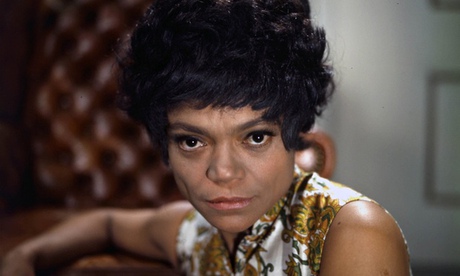
Eartha Kitt is probably best known today as the performer of an enduring Christmas hit, Santa Baby. To those of an older generation, she was Catwoman from the enjoyably camp TV version of Batman. She was not cool: neither a jazz singer like Sarah Vaughan nor a soul singer like Aretha Franklin, she haunted the (then unhip) cabaret circuit, and in the UK was a regular on variety shows such as Sunday Night at the London Palladium. Nowadays, when Tony Bennett is lionised, we might give her proper credit for her smoky, feline (the adjective is unavoidable) and extraordinarily versatile voice. In America’s Mistress, John L Williams makes an excellent case for her rehabilitation.
Kitt was born to a white father and black mother, in a small town amid the cotton fields of South Carolina. Aged eight, she joined her aunt in New York, and a few years later won a place at the Metropolitan high school, learning speech and deportment along with academic subjects. She got lessons in table manners at a restaurant that would have barred her, had not her teacher simply ignored the ruling – this was the early 40s, with the repeal of segregationist laws some way in the future. It was always part of Kitt’s later appeal that she seemed to transcend matters of race and class.
Her break came when she joined the Katherine Dunham company, the first black modern dance company in the US. There followed cabaret spots, hit records, and acting roles on stage, screen and TV – most of them, Catwoman being an exception, forgotten. Her love life was largely hopeless. Her significant lovers tended to be white, and to see her as mistress rather than wife material; her one marriage was brief, though with the happy issue of a daughter, to whom Kitt was devoted. A background as a mixed-race girl from the South was not so easy to transcend, after all.
It is in her striving to make her background irrelevant, Williams argues, that Kitt was notable. It may also be why, at times in the book, the reader loses a sense of her personality. But Williams – who has steered through Kitt’s own unreliable memoirs, interviewed many people who knew her, and apparently listened to every record and seen every film and video – presents a fluent and involving account of her life.
America’s Mistress is published by Quercus (£9.99). Click here to buy it for £7.99

